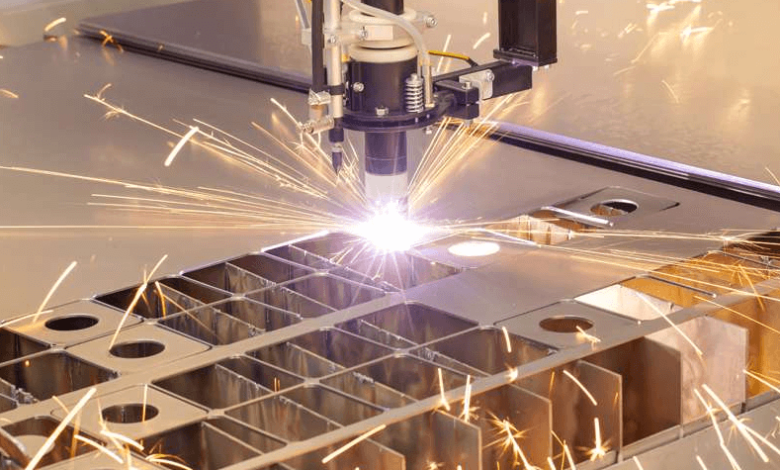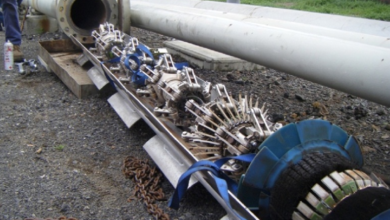Elevating Precision: Exploring the Role of Aluminum Machining Service in Modern Manufacturing

In the high-stakes world of modern manufacturing, the need for lightweight, durable, and highly accurate components is more important than ever. Industries ranging from aerospace to electronics, automotive to medical devices rely heavily on the precision and efficiency offered by aluminum machining service providers. With advancements in CNC technology and the growing demand for custom parts, aluminum machining has cemented its role as an indispensable element of industrial production.
This article explores the core processes, benefits, industry applications, and future of aluminum machining services in the global market.
What is Aluminum Machining?
Aluminum machining refers to the process of shaping and modifying aluminum parts using various techniques, most commonly Computer Numerical Control (CNC) machines. An aluminum machining service typically involves milling, turning, drilling, tapping, and cutting operations that transform raw aluminum stock into finished, functional components.
The use of aluminum offers multiple engineering advantages—its lightweight nature, high strength-to-weight ratio, corrosion resistance, and ease of machining make it a preferred material for numerous industries.
See also: Techoelitecom: Exploring the Tech Elite
Why Aluminum is the Preferred Material for Machining
Before diving into the service aspect, it’s crucial to understand why aluminum stands out as a machining material.
Key Material Advantages:
- Lightweight: Aluminum is approximately 2.7g/cm³ in density, making it nearly three times lighter than steel.
- Corrosion Resistant: Naturally forming oxide layers protect aluminum from rust, especially important in marine and outdoor applications.
- High Machinability: Soft yet stable, aluminum allows faster cutting speeds and longer tool life.
- Thermal and Electrical Conductivity: Ideal for heat sinks and electronic components.
- Recyclable: Aluminum is environmentally friendly and can be reused without degrading its properties.
Because of these characteristics, an aluminum machining service is able to produce cost-effective, high-performance parts for virtually every sector.
Core Processes in Aluminum Machining Service
A professional aluminum machining service often provides a range of processes to meet specific technical requirements:
1. CNC Milling
This subtractive process removes material using rotary cutters. It’s perfect for creating complex geometries, slots, holes, and pockets in aluminum components.
2. CNC Turning
Used for producing cylindrical parts such as shafts, pins, and bushings. Turning operations can be combined with milling for hybrid parts.
3. Drilling and Tapping
Aluminum is especially well-suited for high-speed drilling and thread tapping due to its softness and clean chip evacuation.
4. Surface Finishing
Many services offer post-machining treatments such as bead blasting, anodizing, polishing, and powder coating to enhance the part’s aesthetics and durability.
5. 5-Axis Machining
For parts that require machining on multiple sides or complex contours, 5-axis CNC machines enable single-setup operations that save time and improve precision.
Common Aluminum Grades Used in Machining
Each alloy serves a different purpose depending on the project’s strength, formability, and corrosion resistance needs:
- 6061-T6: Versatile and highly machinable, ideal for general industrial use.
- 7075: Known for high strength, perfect for aerospace and automotive applications.
- 2024: Offers excellent fatigue resistance, often used in structural components.
- 5052: Highly corrosion-resistant and malleable, often used in marine environments.
A quality aluminum machining service will recommend the appropriate alloy based on application and budget.
Applications Across Industries
✈️ Aerospace
Aircraft structures demand parts that are strong but light. Precision-machined aluminum components are used in frames, brackets, and flight control systems.
🚗 Automotive
Engine components, suspension systems, and interior brackets are just some of the parts commonly made via aluminum machining.
💉 Medical Equipment
Aluminum’s non-toxic properties and resistance to corrosion make it suitable for surgical instruments, prosthetics, and diagnostic devices.
🔌 Electronics
From housings to heat sinks, aluminum is central to compact and efficient electronics hardware.
⚙️ Industrial Machinery
Customized gears, clamps, and mechanical parts in automation and robotics are often produced using aluminum machining services.
Benefits of Professional Aluminum Machining Service
Hiring an expert aluminum machining service delivers several strategic advantages:
1. Tight Tolerances
Modern CNC equipment can produce parts with precision levels of ±0.01mm or better, ensuring a perfect fit every time.
2. Rapid Prototyping
Quick turnaround for custom parts enables product developers to test and iterate designs before mass production.
3. Scalability
Whether you need a single prototype or thousands of parts, aluminum machining services can scale production without compromising quality.
4. Customization
From unique part geometries to specific surface finishes, services are highly adaptable to design and functional requirements.
5. Cost-Effectiveness
Compared to casting or forging, CNC machining can reduce tooling costs and production waste—especially in low to medium volume runs.
How to Choose a Reliable Aluminum Machining Service
With global suppliers competing for attention, selecting the right partner is critical. Consider the following when evaluating your options:
- Experience: How long has the company been in the machining industry?
- Certifications: ISO certifications indicate quality control and adherence to international standards.
- Equipment: Do they use modern CNC machines and offer multi-axis capabilities?
- Material Sourcing: Are they transparent about the aluminum grades and origins?
- Customer Support: A good service provider will offer design assistance, real-time feedback, and responsive communication.
Requesting sample parts or reviewing a supplier’s past projects can help you make an informed decision.
Future Trends in Aluminum Machining
As the manufacturing landscape evolves, aluminum machining service providers are embracing innovation:
🔄 Automation & Robotics
More machines now operate with robotic loaders, tool changers, and AI-driven monitoring systems, improving consistency and uptime.
🌱 Sustainability
Eco-conscious practices like aluminum chip recycling, energy-efficient machines, and minimal waste programming are on the rise.
📡 Remote Manufacturing
With cloud-based software and real-time monitoring, clients can oversee part production from anywhere in the world.
🤖 AI Integration
Artificial intelligence in CAM programming reduces errors, optimizes toolpaths, and predicts machine maintenance needs before breakdowns occur.
Conclusion
An aluminum machining service is more than just a manufacturing process—it’s a strategic enabler of modern product development. Whether you’re building the next generation of electric vehicles or developing medical diagnostic tools, precision aluminum components form the foundation of innovation and performance.
With the growing demand for lightweight, high-strength, corrosion-resistant parts, partnering with a trusted aluminum machining service provider can give you the technical edge in today’s competitive landscape. By combining the power of aluminum with the precision of CNC, manufacturers can achieve excellence, efficiency, and scalability in every project.




